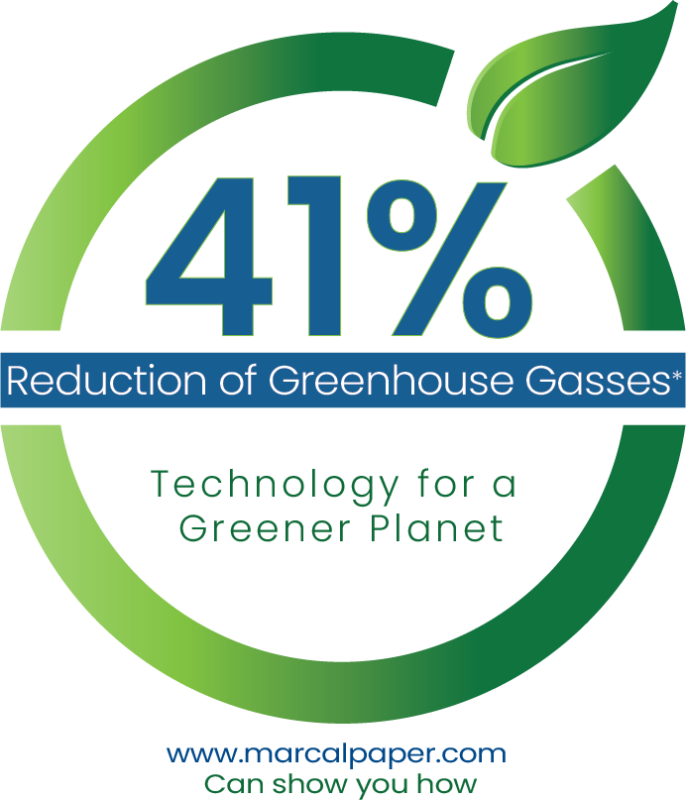Eco-Friendly Products
We take pride in offering a wide range of eco-friendly paper products, including recycled paper towels, tissues, and napkins. These products are made from recycled materials to reduce the need for virgin resources and minimize waste.
Reduced Carbon Footprint
We continually strive to reduce our carbon footprint. Our manufacturing processes are designed for energy efficiency, and we are actively working to decrease our greenhouse gas emissions through innovative technologies and practices. Our Structured Sheet Technology offers a 41% reduction of greenhouse gas emissions when compared to premium TAD paper products.
